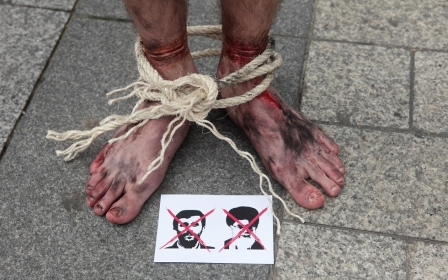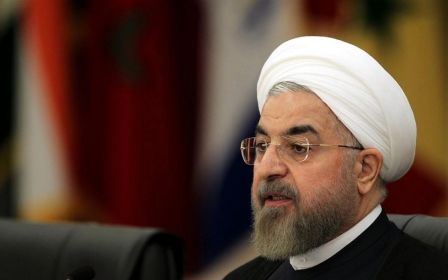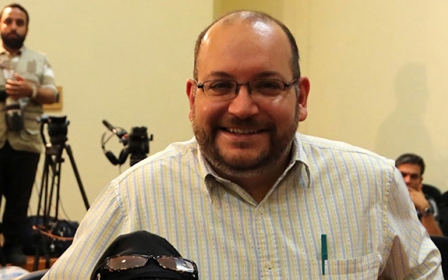Journalists detained in Iran for 'security reasons'

In its first official statement on the detention of three journalists in Tehran, Iran has said they were arrested for “security reasons.”
The three journalists, including the Washington Post Tehran correspondent, were arrested in Iran on 22 July.
The Monday statement from the country’s prosecutor was the first time an Iranian official has given a reason for the July 22 arrest of the Post's Tehran correspondent, Jason Rezaian, and his wife Yeganeh Salehi, as well as a third journalist whose family asked that she not be identified by name.
"Three people were arrested in this case. It is a security case," Gholamhossein Mohseni-Ejeie, who is also the chief spokesman for the Iranian judiciary, said in a statement published by ISNA news agency.
"In line with the law I cannot reveal the details of the case or the charges facing the accused," he said," adding that an investigation was under way.
At the time of the arrest, Iranian media outlets reported that Rezaian had been arrested after allegedly directing the video 'Happy', which sparked controversy after the participants were arrested.
Previously, chief justice Gholamhossein Esmaili had hinted at espionage charges, but made no specific allegations in his statement.
Iran's Deputy Foreign Minister Hassan Ghashghavi said earlier this month that the detention of Rezaian, a dual Iranian-American citizen, his Iranian-national wife and the unnamed photographer was a domestic issue.
"We do not accept dual nationalities. If a person enters Iran with an Iranian passport, that person is considered an Iranian citizen," Ghashghavi told Vatan-e-Emrooz, a prominent conservative daily.
"And we do not allow other countries to demand consular rights on behalf of Iranians," he said.
The United States, which has no diplomatic ties to Iran, has called for the journalists to be freed.
The Washington Post, the United Nations and media watchdogs made similar appeals.
A State Department spokesperson said that the US has reached out to the Swiss embassy in Tehran, which acts as a go-between, to try to ensure consular officials can visit Rezaian.
President Rouhani, who has now been in power for just over a year, famously advocates a more liberal view on implementing social freedoms in the Islamic republic, and began his presidency by restarting nuclear talks with the West.
However, ongoing reports of human rights abuses during his time in power have led some to question his moderate credentials, even as his more liberal policies have sparked criticism from hard-line conservatives.
At least 22 women were executed by the state during Rouhani’s first year in office, according to opposition group the National Council of Resistance of Iran.
Rouhani’s government publicly announced the execution of six of these women, but the group claims that 16 further women were secretly executed in cities throughout Iran.
Earlier this month, United Nations human rights experts expressed alarm at a recent flurry of arrests and harsh sentences inflicted on journalists in Iran.
Two other photographers were on Monday sentenced to face 75 lashes each, after they posted negative online reviews of a photography book by a local public official.
The UN said that since 22 May more than 30 people, including journalists, bloggers, filmmakers and authors, have been arrested, summoned or sentenced in connection with journalistic activity or for expressing their opinions on social media.
Observers said they fear that the arrests of the journalists could undermine the thorny negotiations between Iran and the West for a comprehensive nuclear deal that world powers are seeking to reach by November 24.
New MEE newsletter: Jerusalem Dispatch
Sign up to get the latest insights and analysis on Israel-Palestine, alongside Turkey Unpacked and other MEE newsletters
Middle East Eye delivers independent and unrivalled coverage and analysis of the Middle East, North Africa and beyond. To learn more about republishing this content and the associated fees, please fill out this form. More about MEE can be found here.




